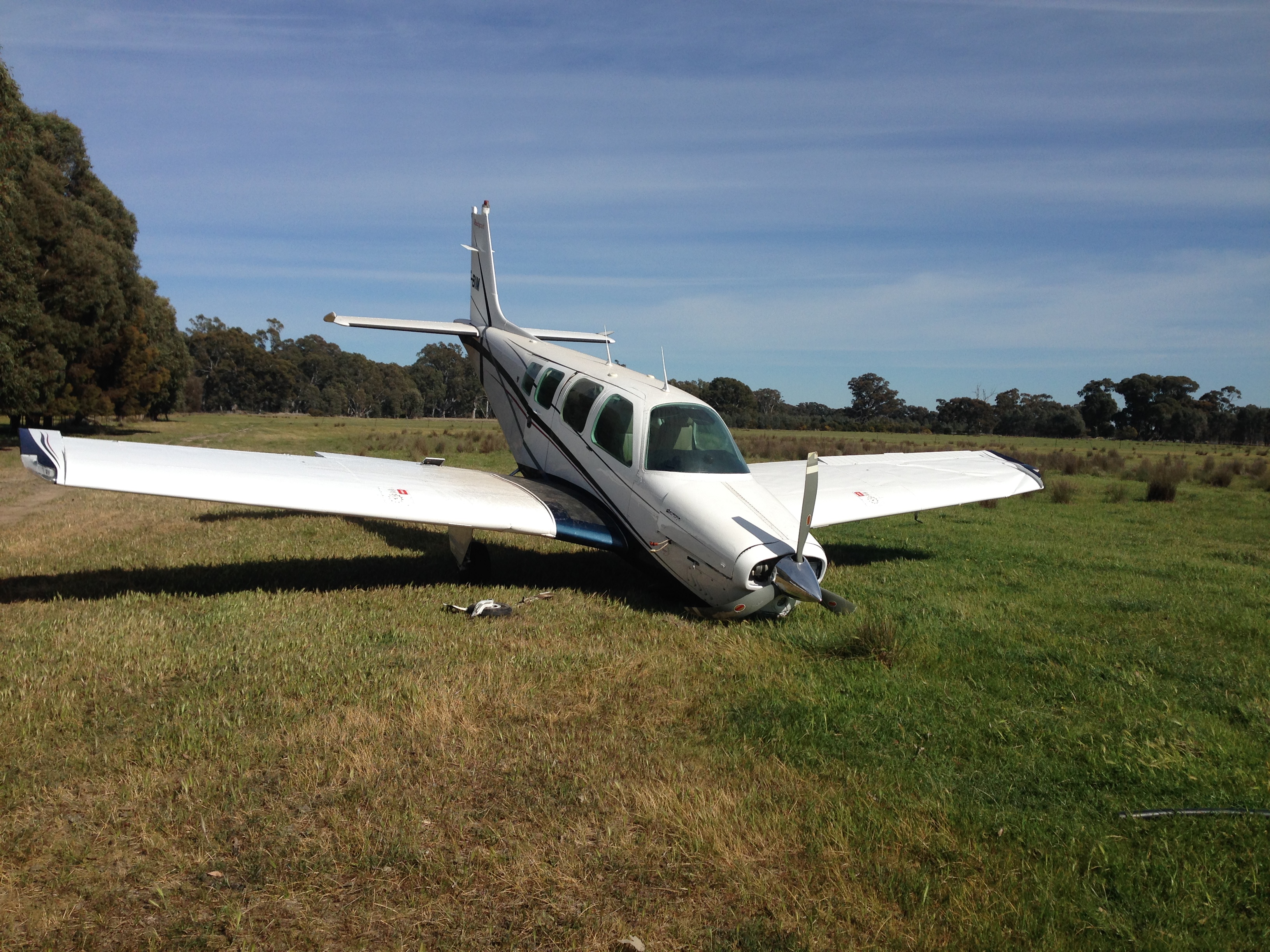| Occurrence Briefs are concise reports that detail the facts surrounding a transport safety occurrence, as received in the initial notification and any follow-up enquiries. They provide an opportunity to share safety messages in the absence of an investigation. |
What happened
On 30 September 2018, a Beechcraft A36 was conducting a flight from Lilydale, Victoria (Vic.) to Euroa, Vic.
At about 1800 Eastern Standard Time, at approximately 800 ft, the pilot turned onto the base leg of the circuit in preparation to land at Euroa, at which time the engine lost power. The pilot reported that he suspected fuel exhaustion in the right tank, currently in use, and changed tanks. He was unable to get the engine re-started. Due to the low altitude, he did not have enough time to troubleshoot or turn the aircraft back to the Euroa aircraft landing area. He selected a nearby paddock as a suitable location for his emergency landing; however, due to the high sink rate he was unable to make this location and instead landed early in a rough area.
The aircraft skidded about 70 m upon landing and the impact caused the front wheel to buckle and the nose to impact with the ground, bending the propeller blades. The pilot was uninjured.
After landing, the pilot called a nearby friend. The pilot’s phone battery ran out before he gave details of his exact location. The pilot’s friend contacted the chief pilot of Euroa airstrip, who called emergency services. Emergency services attended the site and foamed the aircraft as a precautionary measure.
The pilot said that he likely forgot to change fuel tanks because he was distracted – he was trying to land before last light and he was checking the runway for kangaroos.
Figure 1: Beechcraft A36 after landing

Source: Victoria Police
Safety message
Accidents involving fuel mismanagement are an ongoing aviation safety concern. Pilots need to:
- understand how their aircraft fuel system works
- know how much fuel they have in each tank
- ensure that the appropriate tank is selected at all times.
In this instance, and others like it, selecting the appropriate fuel tank during pre-descent checks would avoid having to manage fuel during the higher workload period of approach. This would reduce the risk of a fuel starvation event.
For more information on fuel management, see ATSB research report, Starved and Exhausted: Fuel management aviation accidents (AR-2011-112).
About this report
Decisions regarding whether to conduct an investigation, and the scope of an investigation, are based on many factors, including the level of safety benefit likely to be obtained from an investigation. For this occurrence, no investigation has been conducted and the ATSB did not verify the accuracy of the information. A brief description has been written using information supplied in the notification and any follow-up information in order to produce a short summary report, and allow for greater industry awareness of potential safety issues and possible safety actions.


